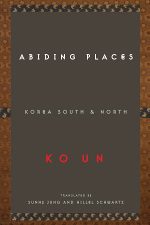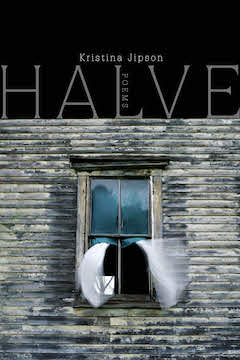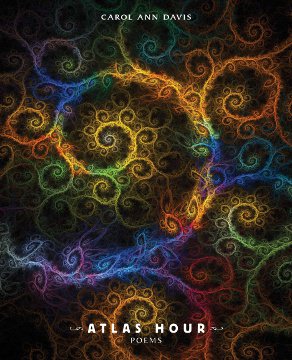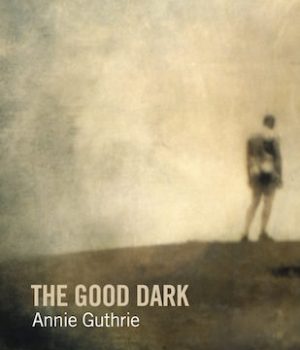Inflorescence
by Sarah Hannah
$19.95
“Hannah shows a fearless desire to experiment with form as she works to preserve the truth of her mother’s situation. Tercets, quatrains, cinquaines, couplets, most in unrhymed stanzas without regular meter, give the poems a formalized jaggedness.” –Harvard Review
Out of stock
Harvard Review has found Sarah Hannah’s Inflorescence a collection of courageous, inventive, and occasionally heartbreaking poetry. “Hannah shows a fearless desire to experiment with form as she works to preserve the truth of her mother’s situation. Tercets, quatrains, cinquaines, couplets, most in unrhymed stanzas without regular meter, give the poems a formalized jaggedness.” For the rest of Joyce Wilson’s unflinching and laudatory review, click here.
Jane Satterfield has reviewed Inflorescence for Antioch Review, complimenting Sarah Hannah’s power as well as her versatility. It begins with: ‘The fecund image of an abandoned garden “Locked, strung/With pollens, stirred by bees” and haunted by “the figure of the woman/The recent flutter of hands” opens Sarah Hannah’s second book, Inflorescence, a compelling distillation of tragedy into densely musical verse.’ The rest of this positive and insightful review may be read here.
Pleiades reviewer Joan Houlihan was deeply moved by Sarah Hannah’s Inflorescence, from her word choice to her approach to the subject matter. A sample of her review: ‘A world is evoked in a few words—locked, strung, stirred, outraged—and they are emblematic of the emotional landscape throughout. The last couplet in “The Garden As She Left It,” shows the “dim figure of the woman, / the recent flutter of the hands” and we “see” the departed mother (the air around the broom she left in the garden “furious”—a wonderful doubleness there, the image of dust having recently been stirred up by the broom, making the departure always a recent event in memory, coupled with the narrator’s own “fury” at being left).’
The full review is available here.
Shannon Walsh, Associate Editor at Zoland Poetry, has written a heartfelt review of Inflorescence. She writes, “It is a truly original book of linked poems about the deterioration and eventual death of Hannah’s mother, Renee Rothbein. Of course, this in itself grounds the book within the realm of the confessional; the subject matter of family death; the ever-pervasive form of linked poems. However, this intelligent, subtle, sometimes formal, and always darkly intense book has more depth than such labels can give.” You can read the full review at the Zoland Poetry Reviews section.
From American Poet, Volume 34, Spring ’08:
In her second book, Inflorescence, the late Sarah Hannah examines her role as a daughter and caregiver to a mother diagnosed with terminal cancer. A memoir-in-verse, this collection is finely wrought with humor even in its depiction of a time filled with shocking loss and grief. Hannah’s unflinching eye absorbs every detail, yet each poem is cleverly punctuated with moments of subtle meditation, such as in “Sister Morphine”:
Bustle in her dark body
In the army hospital;In the Stones’ saddest ballad;
On our highest kitchen shelfI keep her for you—
Cerulean, sublingual mixtureClad in brown glass
The poems of this collection are linked by both subject matter and Hannah’s consistent use of wildflowers as metaphorical objects. Poised between the lyrical and narrative, her poetry gently turns us from joy to longing, from brute honesty to restrained grief. Ultimately, we witness Hannah’s personal story evolving into a sequence of gleaming, transcendent truths
Sarah Hannah follows her critically acclaimed first volume of poetry, Longing Distance, with Inflorescence, a compelling memoir-in-verse for her mother, Boston Expressionist painter Renee Rothbein, and their intense relationship in which they struggle with Rothbein’s mental illness and eventual death from cancer. Hannah’s characteristic love of traditional poetic forms, wit, and fascination with the natural world continue to manifest in this sometimes shocking story that cannot fail to move scores of readers, including anyone who has cared for the sick, dealt with mental illness, or lost someone close to them. However, Inflorescence is far more than a narrative of sickness and loss. Through rich language and use of metaphor, most often that of wildflowers, their common names and lore, Inflorescence often treats its subject matter obliquely, making the personal and particular universal. In all, Hannah’s second volume of poetry examines unflinchingly the deep and difficult love between a mother and daughter, stares death in the face, and transforms a unique story into a series of luminous, transcendent truths.
Additional information
| Format |
|---|
The Garden As She Left It
Locked, strung
With pollens, stirred by bees.
The cicadas burn
Their fine blue current.
At the center, two paths cross:
A ring of impatiens.
Their white petals lift to the air.
Are they waiting for the next departure—
Scrub jay, sulfur moth, the summer?
The paths lead outward
To a brick border,
A perfect circle squared.
On the gray wall of the house
A thin broom slants,
The air around it furious.
The dim figure of the woman,
The recent flutter of hands.

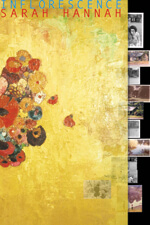
 Sarah Hannah received a B.A. from Wesleyan University, an M.F.A. and a Ph.D. from Columbia University. Her poems have appeared in The Southern Review, Parnassus, Agni, Rattapallax, Western Humanities Review, New Millennium Writing, The National Poetry Review, Michigan Quarterly Review, The Harvard Review, and many other journals. She was also an editor at Barrow Street Press, and Poet Laureate of The Friends of Hemlock Gorge, an organization of nature conservators in Newton, MA. She was awarded a Governor’s Fellowship for residencies at the Virginia Center for the Creative Arts for summer 2001, 2002 and 2006. The original manuscript which became Longing Distance was a semi-finalist for the Yale Younger Poets Prize in 2002. Poems from Inflorescence have been nominated for four Pushcart Prizes. She grew up in Newton, and until her death in May 2007, taught poetry writing and literature at Emerson College.
Sarah Hannah received a B.A. from Wesleyan University, an M.F.A. and a Ph.D. from Columbia University. Her poems have appeared in The Southern Review, Parnassus, Agni, Rattapallax, Western Humanities Review, New Millennium Writing, The National Poetry Review, Michigan Quarterly Review, The Harvard Review, and many other journals. She was also an editor at Barrow Street Press, and Poet Laureate of The Friends of Hemlock Gorge, an organization of nature conservators in Newton, MA. She was awarded a Governor’s Fellowship for residencies at the Virginia Center for the Creative Arts for summer 2001, 2002 and 2006. The original manuscript which became Longing Distance was a semi-finalist for the Yale Younger Poets Prize in 2002. Poems from Inflorescence have been nominated for four Pushcart Prizes. She grew up in Newton, and until her death in May 2007, taught poetry writing and literature at Emerson College.